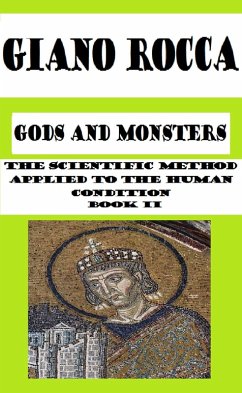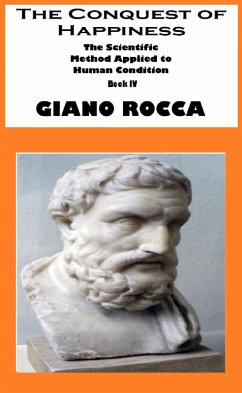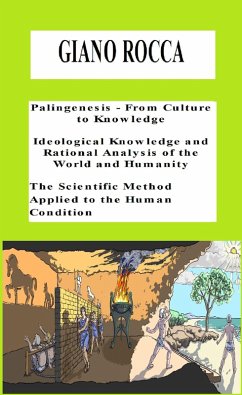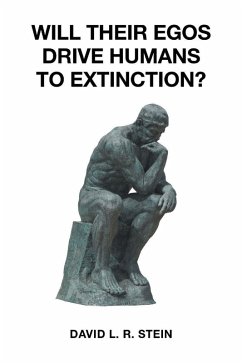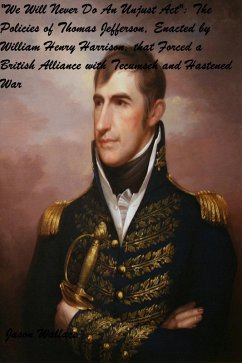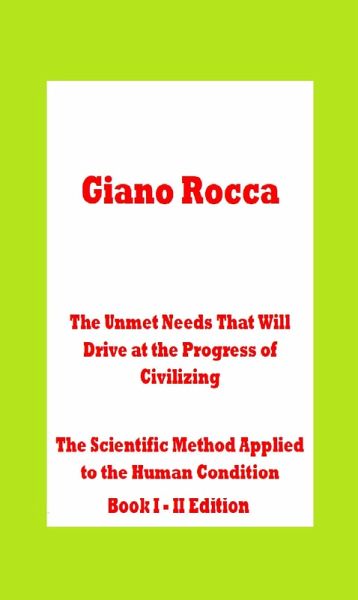
The Unmet Needs That Will Drive at the Progress of Civilizing The Scientific Method Applied to the Human Condition Book I - II Edition (eBook, ePUB)
Sofort per Download lieferbar
2,99 €
inkl. MwSt.

PAYBACK Punkte
0 °P sammeln!
Every human being has personal objectives (of which he may be more or less conscious), but the human species has a purpose, common with all living species that have a social life (even when it is reduced to the minimum necessary for the reproduction of life itself), that is, it has the aim of being able to express one's need for sociality in a fully satisfactory way, without repressing but, rather, fully manifesting one's need for individualization, the latter of which is in symbiosis with the need for sociality. To achieve this aim, it has the aim of advance the universal process of civilizin...
Every human being has personal objectives (of which he may be more or less conscious), but the human species has a purpose, common with all living species that have a social life (even when it is reduced to the minimum necessary for the reproduction of life itself), that is, it has the aim of being able to express one's need for sociality in a fully satisfactory way, without repressing but, rather, fully manifesting one's need for individualization, the latter of which is in symbiosis with the need for sociality. To achieve this aim, it has the aim of advance the universal process of civilizing, a process to which each individual, by contributing to it, gives value to their existence, transforming it: from pure survival into existence tending towards the full manifestation of being. Awareness of this purpose depends on the development of psychic faculties as well as on acquired knowledge and open-mindedness: that is, by the psychological characteristics of each individual. All the types of society that can be found among all animal species endowed with sociality and the types of society that the human species has, until now, experienced (of which we have limited knowledge) outline progress in the possibility of expressing the human need for sociality, a need that is not in conflict, but is coherent and manifests itself in a parallel progressive way, with the need to express the individualization of each individual. Current societies based on statehood do not allow these fundamental needs of human beings to be fully expressed and, therefore, the need to overcome this type of society has arisen for several millennia. This need has manifested itself, in various forms, in philosophical conceptions, in the main religions, and in many ideologies and political movements. The attempts that have been made to resolve what some philosophers have defined as the "social problem" par excellence have had results null if they have not, even, had counterproductive results. This need is felt in an increasingly generalized way and more and more strongly by contemporaries, although they are disoriented and frustrated by the repeated and macroscopic failures of all the attempts made up to now, in various directions, like those who proceed blindly and gropingly. The author of this writing is well aware of the fact that any attempt at social emancipation would be completely in vain, if not counterproductive and disastrous, where it is not based on scientific knowledge of social reality, as it has evolved among animal species and among human populations, in the course of their psychic and psychological evolution, and on knowledge of the deepest nature of human beings, thus creating a science of social reality and human nature. He therefore believes that it is necessary to create a science of social reality and human nature. He therefore set himself the objective of analyzing, in a scientific way, namely according to the Galilean-Newtonian scientific method, the social reality that occurred, starting from the most elementary forms of social organization found among species of less evolved animals, in terms of the manifestation of sociality, then arriving at analyzing the evolution of societies that have been tested by human beings, starting from the anthropological knowledge deduced from archaeological excavations. The objective was then to design a new model of social organization, which is based on the voluntariness and desirability and, therefore, on voluntary choice of those who want to join it (in order to avoid creating further suffering for human beings, already on the brink of desperation). The feasibility of such a project will have to be verified and we cannot hope for anything better than there is someone who will want to experiment with it, giving their own contribution of knowledge of human nature and the organization of a human society consistent with individual and universal purposes, in modifying or perfecting, this project.
Dieser Download kann aus rechtlichen Gründen nur mit Rechnungsadresse in A, B, CY, CZ, D, DK, EW, E, FIN, F, GR, H, IRL, I, LT, L, LR, M, NL, PL, P, R, S, SLO, SK ausgeliefert werden.




